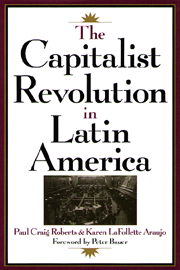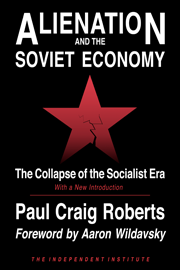In his recently published magnum opus, From Dawn to Decadence, Jacques Barzun writes that we are a decadent civilization. He means that the ideas that gave us energy and produced reforms have become exhausted and have no more to offer. Another way of looking at it would be to say that we ourselves have become bored with freedom, liberty, and justice and have lost confidence in the ideals that made us great.
With the emphasis on political correctness, U.S. schools and universities produce people who are more brainwashed than educated. Certainly freedom and justice have lost their universal meanings. These concepts have been dramatically narrowed and today are associated with the self-serving demands of victims groups.
The loss of justice is a big loss. Justice was the greatest human achievement. Its pursuit gave us liberty and freedom. Justice makes law a shield and not a weapon. It prevents the arbitrary use of power to ruin and dispossess. Even defendants in criminal cases came under the protection of justice.
Supreme Court Justice George Sutherland said in 1934 that law had a two-fold aim: “that guilt shall not escape or innocence suffer.” The prosecutor’s function, he said, was not to win a case but to serve justice by finding truth. The prosecutor’s duty to truth precluded his use of improper methods that could produce a wrongful conviction.
Justice Robert Jackson agreed. A prosecutor, he said, “seeks truth, not victims.”
Alas, such idealism has been lost to decadence. Recently a federal district judge wrote in response to my book, The Tyranny of Good Intentions, that federal judges are ceasing to serve as checks on prosecutorial abuses. This is because White House nominations and Senate confirmations of federal judges defer to career bureaucrats in the Department of Justice (sic). The bureaucrats choose the judges according to the department’s litigation interests. The judge says in his letter that he has never seen a judge, who has reined in the government, be elevated to a higher bench.
Thus, the ambition of judges, like the ambition of prosecutors, has overthrown justice.
Just ask Michael Zinn, founder and CEO of Besicorp, an alternative energy and cogeneration company that made large returns for its shareholders. Better still, read his book, Mad-Dog Prosecutors and Other Hazards of American Business.
Mr. Zinn made the mistake of taking his company public. This made it possible for Alan Russell Kahn and contingency-fee lawyers to attack the company with extortionate litigation, which apparently escalated into an attempt to steal the company from Zinn.
Zinn fought them off. The raiders responded with a barrage of criminal accusations that brought in the SEC, the FBI, and the IRS. Zinn soon found himself the target of a mad-dog prosecutor, Assistant U.S. Attorney Elliot Jacobson.
Zinn hired experienced former federal prosecutors as his attorneys. They advised him that federal prosecutors cared not a whit about his innocence or guilt; their only concern was their conviction rate. Zinn would have to make a plea or Jacobson would load up the fabricated charges to the point that Zinn would never again see the light of day outside of prison.
To end the ordeal and the hemorrhage of money, Zinn made the obligatory self-incrimination and pled guilty to an offense that no one had committed. He spent six months in prison, but retained control of his company, which he led to greater success after his release.
Zinn’s well-written book is interesting on many levels. It is a complete guide to the trials and tribulations of taking a company public. It exposes the vicious methods that crooked class action lawyers use to despoil productive corporations. And it shows the horrifying state of a criminal justice system that has degenerated into mendacity and evil.
No American, Zinn says, no matter how prominent, public-spirited, or innocent, is safe from wrongful conviction. Foolish Americans, blindly trusting “American justice,” are naïfs, like Zinn was. They will be the next victims.









